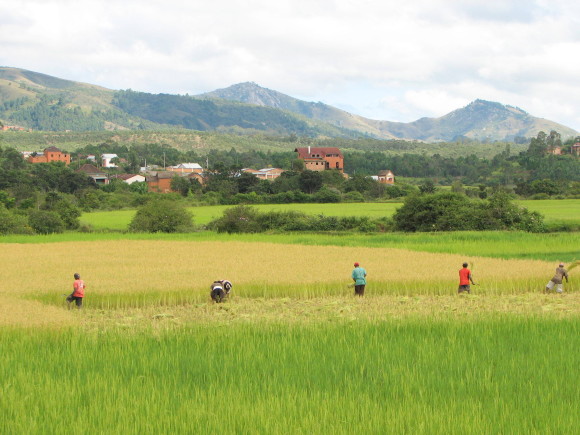(Note: This is a guest post from my friend, colleague, and coauthor Christine Moser, who is an associate professor of economics at Western Michigan University, and whose research agenda lies at the intersection of development economics and environmental economics.)

The system of rice intensification (SRI) was developed in the 1980s by a French priest working with farmers in Madagascar and has since been promoted in rice-producing countries around the world. SRI occasionally makes an appearance in the international press, such as in this recent article in The Guardian.
Proponents of SRI tout not just the yield gains derived from the technique, but the fact that SRI does not require purchased inputs such as chemical fertilizer or improved seeds, and therefore should be accessible to the poor. SRI can also greatly reduce water use, a huge advantage in some parts of the world.